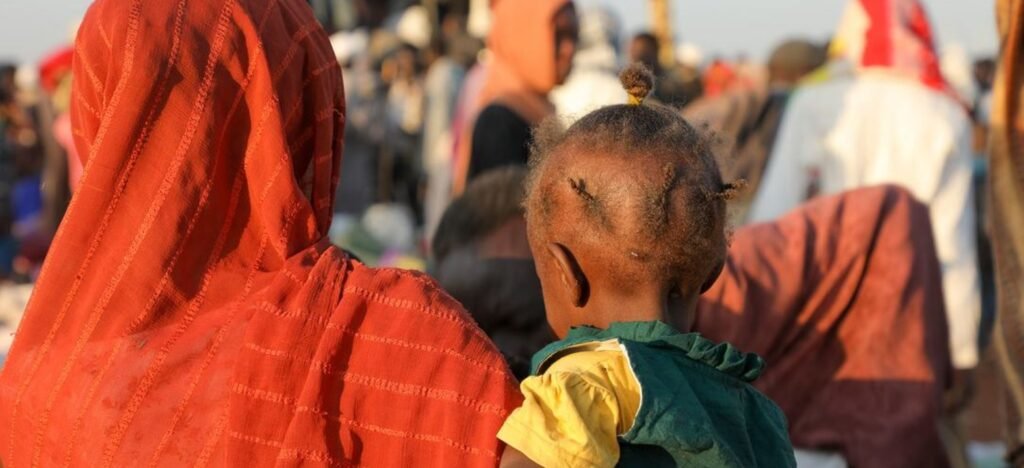Sudanese Refugees Face a Grim Choice: Death by Bullets or Starvation
Report – Sudan Scope
The escalating global refugee crisis, starkly visible in Sudan, reminds us of a painful truth: our humanitarian ideals often collide with financial realities.
Recent reports from the United Nations High Commissioner for Refugees (UNHCR) point to an imminent crisis. Severe budget cuts amounting to $1.4 billion have led to the suspension or closure of global programs, meaning that life-saving aid for refugees, especially those fleeing atrocities in Sudan, is now on the brink of collapse.
What’s happening on the ground in areas like the Sudan-Chad border is harrowing. “We can’t stop water or sanitation, but we are forced to make decisions when it comes to, for example, shelter,” explained Dominique Hyde, Director of External Relations at UNHCR. These words are not just a factual statement; they’re a painful admission of the impossible choices humanitarian organizations must make as support dwindles. The fact that six out of ten refugees fleeing the conflict in Sudan are left without basic shelter goes beyond statistics; it constitutes a collective moral failure.
The threat, however, is not limited to shelter. A rapidly intensifying famine looms, threatening to unleash a full-scale humanitarian catastrophe. As the war rages on and spreads, the risk of famine in Sudan has become unprecedented, particularly in the Darfur, Kordofan, and White Nile regions. Field reports indicate that food insecurity has deteriorated to critical levels, with over 18 million people expected to face acute food shortages by year’s end if the conflict continues. This threat has been worsened by the absence of critical support from the U.S. Agency for International Development (USAID), previously one of the largest donors to Sudan’s food aid programs, and by the failure of donor countries to honor previous commitments.
Hunger has already taken hold in refugee camps. Since October 2023, dozens have died in refugee camps in eastern Chad due to severe malnutrition, lack of health services, and unclean water. These early deaths are a grim reminder that the crisis does not wait for official alerts; it is already here, consuming the weakest day by day. This funding shortfall is not merely an issue of comfort; it directly undermines protection and human dignity. Thousands of vulnerable individuals in remote border areas in South Sudan are being prevented from relocating to safer settlements. Even worse, essential services such as refugee registration, child protection, legal counseling, and the prevention and response to gender-based violence are taking devastating hits. These are not “extra services”; they are the pillars of international protection.
Dominique Hyde’s urgent appeal for “flexible funding from donors” is a stark call to action, one that could mean the difference between life and death for up to 11.6 million refugees and others at risk of losing access to direct humanitarian assistance this year. That figure represents roughly a third of those assisted by UNHCR last year. It signals a worrying trend in which the world is finding it increasingly difficult to shoulder the burden of humanitarian crises it has helped create.
The crisis facing UNHCR reflects a world retreating from its shared responsibilities. As we reflect on the shocking reports of people fleeing the horrors of war, we must ask ourselves: Is this the world we want to live in, one that shuts its doors on those who have lost everything? The answer must be a resounding “No”, accompanied by a renewed commitment to support the organizations that stand between utter despair and a flicker of hope, between starvation and survival.

